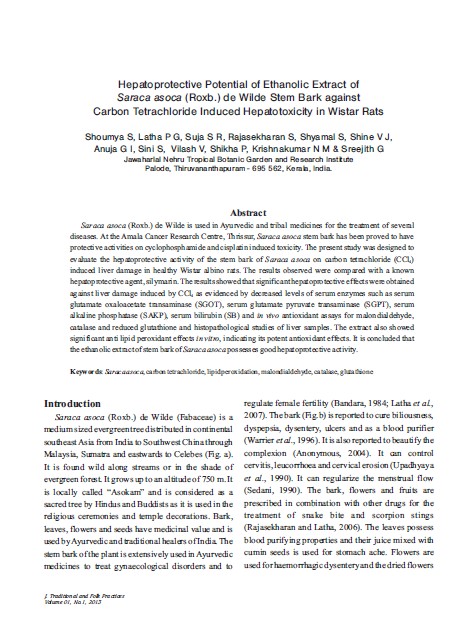Hepatoprotective Potential of Ethanolic Extract of Saraca asoca (Roxb.) de Wilde Stem Bark against Carbon Tetrachloride Induced Hepatotoxicity in Wistar Rats
Keywords:
Saraca asoca, carbon tetrachloride, lipid peroxidation, malondialdehyde, catalase, glutathioneAbstract
Saraca asoca (Roxb.) de Wilde is used in Ayurvedic and tribal medicines for the treatment of several diseases. At the Amala Cancer Research Centre, Thrissur, Saraca asoca stem bark has been proved to have protective activities on cyclophosphamide and cisplatin induced toxicity. The present study was designed to evaluate the hepatoprotective activity of the stem bark of Saraca asoca on carbon tetrachloride (CCl ) 4 induced liver damage in healthy Wistar albino rats. The results observed were compared with a known hepatoprotective agent, silymarin. The results showed that significant hepatoprotective effects were obtained against liver damage induced by CCl as evidenced by decreased levels of serum enzymes such as serum 4 glutamate oxaloacetate transaminase (SGOT), serum glutamate pyruvate transaminase (SGPT), serum alkaline phosphatase (SAKP), serum bilirubin (SB) and in vivo antioxidant assays for malondialdehyde, catalase and reduced glutathione and histopathological studies of liver samples. The extract also showed significant anti lipid peroxidant effects in vitro, indicating its potent antioxidant effects. It is concluded that the ethanolic extract of stem bark of Saraca asoca possesses good hepatoprotective activity.


